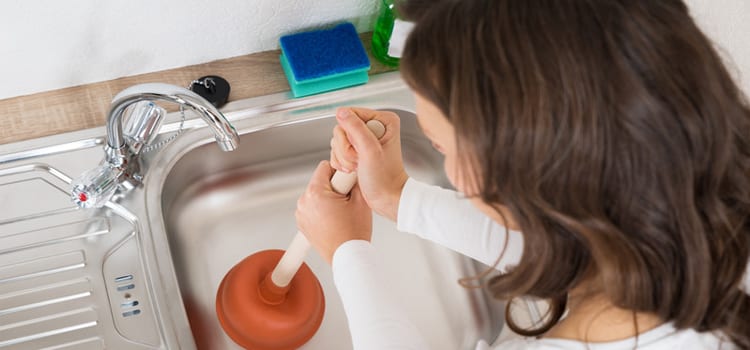Blockages in drains can cause significant annoyance in any home. They may result in bad smells, sluggish drainage, or even expensive plumbing fixes. Fortunately, it’s not as difficult as it might seem to prevent clogged drains. You can keep the smooth operation of your drains by implementing a few basic practices and adjustments to your daily schedule. This post will discuss practical strategies for keeping your home’s drains unclogged.
Proper Disposal Of Waste
The inappropriate disposal of waste is one of the main causes of clogged drains. Avoid putting non-biodegradable objects down the sink drain or flushing them down the toilet to avoid this problem. Wet wipes, sanitary pads, dental floss, and cotton balls are among the things that should be thrown out in the trash as opposed to flushed. Make sure the strainer or basket under your kitchen sink collects food scraps and other debris.
Regular Drain Maintenance
Regular maintenance is essential for preventing blocked drains. Consider scheduling annual or semi-annual professional drain inspections and cleaning. Trained residential drain plumbers in Newcastle can identify any potential issues and clear out debris, preventing blockages from developing over time. Moreover, they can perform preventative measures like drain snaking or hydro-jetting to keep your pipes clear and functioning properly.
Use Drain Guards
Drain guards are simple yet effective tools for preventing debris from entering your drains. These can be placed over the drain openings in your sinks, showers, and bathtubs. Drain guards catch hair, soap scum, and other particles before they have a chance to accumulate and cause blockages. They are easy to clean and can be a great addition to your plumbing maintenance routine.
Avoiding Tree Root Intrusion
If you have trees in your yard, be aware that their roots can infiltrate your underground sewer lines, causing blockages and costly repairs. To prevent this, consider planting trees away from your sewer lines or opting for trees with non-invasive root systems. Regularly monitor your yard for signs of root intrusion, such as slow drains or sewage backups, and take immediate action if you suspect a problem.
Be Mindful Of Grease And Fat
Grease and fat may seem harmless when they go down the drain, but they can cause significant blockages in your plumbing over time. When these substances cool down, they solidify and adhere to the inside of your pipes, restricting water flow. To prevent this issue, avoid pouring cooking grease and fat down the sink. Rather, place them in a container to cool and solidify before throwing them away.
Regularly Clean Your Drains
One proactive way to avoid blockages is to have your drains cleaned regularly. For a natural drain cleaning solution, mix vinegar and baking soda. After flushing the drain with hot water, pour a cup of vinegar and a cup of baking soda down it. This can keep your drains clear by dissolving accumulated debris. For maintenance, repeat this procedure every few months.
Educate Your Household
Blockages in drains should be avoided by working together. Make sure that everyone in your home understands the significance of maintaining your drains and disposing of waste properly. Teach your family members not to flush inappropriate items down the toilet or let food scraps go down the sink without using a strainer. By educating your household, you can collectively work towards preventing blockages and maintaining a smoothly functioning plumbing system.
Conclusion
A common household problem that can be costly and inconvenient to fix is blocked drains. However, you can greatly lower the likelihood of blockages in your home with a few easy preventative steps and routine maintenance. Proper waste disposal, the use of drain guards, and being mindful of what goes down your drains are essential steps in preventing blockages. Regular drain maintenance by professionals, like annual inspections and cleaning, can catch potential issues before they become major problems.



